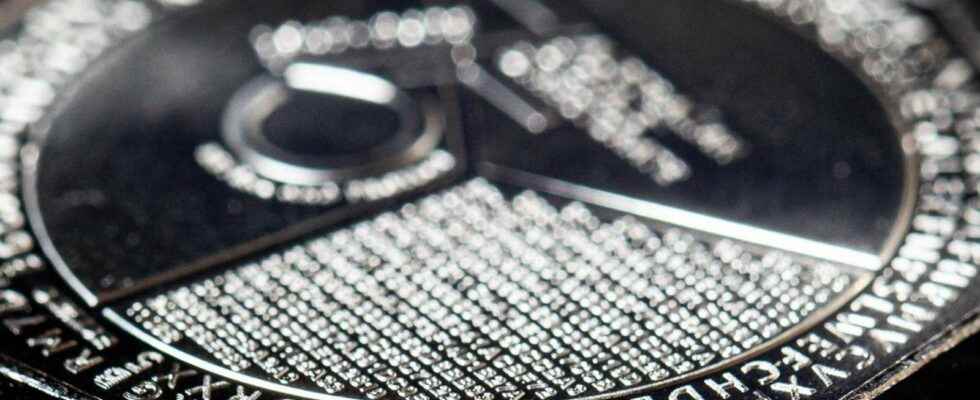You will also be interested
[EN VIDÉO] Kézako: how is data encrypted on the Internet? Cryptography is the oldest form of encryption. There are traces of its use until 2,000 BC. This technique still used today, especially on the Web, reveals its mysteries on video thanks to the Kézako program from Unisciel and the University of Lille 1.
L’Australian Signals Directorate (ASD), the Australian intelligence service, has just celebrated its 75th anniversary. To celebrate the event, the organization designed a commemorative coin of 50 cents, in a limited edition of 50,000 copies. The piece, which went on sale on 1er September, contains several messages with four levels of encryption advertisement.
The code, written on both sides, is a recruitment technique for the intelligence service. ” We thought this was a really fun way to inspire people to smash codes in the hope that if they manage to clear the four levels of coding on the piece, they may apply for a job at the Australian Signals Directorate “, had then declared Rachel Noble, director general of the ASD.
A code solved very quickly
It’s done. Once the coins went on sale, a 14-year-old boy from Tasmania deciphered the message in just over an hour. The ASD put together a form for those who could fully decipher the message, and the teenager was the first to submit his response. Rachel Noble said the agency hopes to meet with him soon to recruit him, but there is a fifth encryption level that the teenager had not discovered.
However, others have solved the puzzles long before. Before the coin could be put on sale, its contents had to be published in a legal text, available online from August 20. Some spotted it and posted it on forums. Nevertheless, it was impossible to decipher the last code without having the part in hand (or high definition images).
Solutions at the five levels of code
The first code is on the front side, with braille numbers below the text Elizabeth II – Australia. By reading the letters in the order indicated, we get the message Atbashthe name of a substitution cipher, where A is replaced by Z, B by Y, and so on.
The tail side contains two lines of text around the edge. By applying the Atbash to the outer circle, one gets the message ” We are audacious in concept and meticulous in execution. Find clarity in 7 width x 5 depth or, translated into French, ” We are bold in concept and meticulous in execution. Find clarity in 7 wide x 5 deep “.
Following the direction in the second part of the post, the next step is to arrange the letters in the inner circle in 7 by 5 grids starting with BGOAMVO, making two grids in total. A vertical reading of the letters thus organized gives “ Belonging to a great team striving for excellence we make a difference XOR HEX A5D75 “, or in French ” Belonging to a great team that strives for excellence, we can make a difference XOR HEX A5D75 “.
The message indicates that the next part is using the encryption XOR. It must be applied to the characters in the central part, which are in hexadecimal, doubling the given key to get A5D75A5D75. This part can be done with a simple website, such as www.dcode.fr. The resulting text, translated into French, gives “ For 75 years, the Australian Signals Directorate has brought together people with the skills, adaptability and imagination to operate on the fine line between the difficult and the impossible.. “.
Finally, the last encryption lies in a subtle physical distinction. Some letters on the two lines around the edge have a different finish. The outer circle is in code Walrus and gives ” 1947 DSB Albert Park », the year when the agency was founded, its initial name and the place. The inner circle is binary and gives ” ASD CBR 2022 (CBR for Canberra, the current seat of the ASD).
If you have followed everything, you can now apply to the ASD!
Interested in what you just read?
